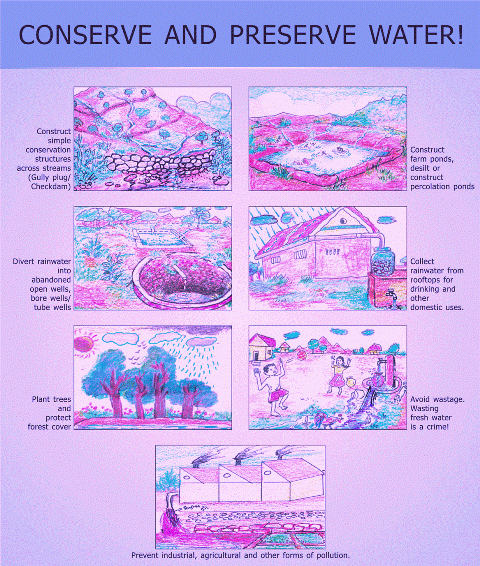Friday, Dec 14, 2007
CHENNAI: “Humanitarian action is not only emergency action,” says the president of the French Red Cross and former French Health Minister, Jean-Francois Mattei. “If you save someone from drowning in the sea, you don’t abandon him on the beach.”
Nearly three years on from the tsunami, this is perhaps one of the most significant lessons learned — besides bringing devastation to the lives of fisherfolk along the coast of India, the tsunami exposed the more persistent problems of poverty, including gender and caste inequality. As more and more international and local non-governmental organisations bring their projects to a close, The Hindu spoke to Professor Mattei at the end of his two-day visit to Tamil Nadu to review progress in the field.
Selection of partners
The French Red Cross was not a natural fit for tsunami reconstruction and it arrived late. “We have been working in India for just over two years in a new way … The French Red Cross does not normally finance NGOs,” Professor Mattei says. Since the French people gave a lot of money to the Red Cross for tsunami relief, they selected partners they deemed trustworthy in the State.
As many donors discovered, not everyone involved in tsunami work was interested in relief — projects with two out of 14 organisations were terminated.
“We are controlled officially by the government of France, therefore, we had to impose on our partners the same rules that we have in France,” he stressed. There are several basic procedures involved in the auditing process: money is given at each stage in the project and no increases in the budget are accepted, it retains tight control on the quality of the project, sends an audit company from France to visit the projects to ensure compliance.
Despite these hiccups, says Professor Mattei, it is through its work here in India that the French Red Cross has developed what he now calls sustainable humanitarian action.
In India, he says, the Red Cross found all the elements crucial to helping people rebuild their lives: housing, training, education for children and agricultural productivity. It is by working together, he stresses, they have found success: 1,745 houses have been constructed, 200 young people have been employed (some of those for grandmasters such as Jean-Francois Lesage), and a microfinance project for small landowners near Puducherry, teaching them how to make and use organic fertilizers, brought a 50 per cent increase in crop yield.
“Life is winning the battle against death,” he says. Children are the incarnation of that, he adds, commenting on the smiles of the children seen in two projects in particular — SOS children’s villages of India, which runs homes for children, and Speed Trust, which works with children in the slums of T. Nagar in Chennai.
Seventy-five per cent of the Red Cross projects are now complete. By the end of 2008, the French Red Cross will withdraw completely. “The goal of humanitarian action is to help people to become autonomous,” he says. But what about the unfinished work in the villages, the stories of casteism and gender discrimination that the tsunami revealed?
“Humanitarian action,” he says “is not supposed to become assistance … The Red Cross opposes all forms of discrimination … If it is written in the story of the country, that country has to invoke the right to equality … These are basic human rights.”
Source: http://www.hindu.com/2007/12/14/stories/2007121461121700.htm
CHENNAI: “Humanitarian action is not only emergency action,” says the president of the French Red Cross and former French Health Minister, Jean-Francois Mattei. “If you save someone from drowning in the sea, you don’t abandon him on the beach.”
Nearly three years on from the tsunami, this is perhaps one of the most significant lessons learned — besides bringing devastation to the lives of fisherfolk along the coast of India, the tsunami exposed the more persistent problems of poverty, including gender and caste inequality. As more and more international and local non-governmental organisations bring their projects to a close, The Hindu spoke to Professor Mattei at the end of his two-day visit to Tamil Nadu to review progress in the field.
Selection of partners
The French Red Cross was not a natural fit for tsunami reconstruction and it arrived late. “We have been working in India for just over two years in a new way … The French Red Cross does not normally finance NGOs,” Professor Mattei says. Since the French people gave a lot of money to the Red Cross for tsunami relief, they selected partners they deemed trustworthy in the State.
As many donors discovered, not everyone involved in tsunami work was interested in relief — projects with two out of 14 organisations were terminated.
“We are controlled officially by the government of France, therefore, we had to impose on our partners the same rules that we have in France,” he stressed. There are several basic procedures involved in the auditing process: money is given at each stage in the project and no increases in the budget are accepted, it retains tight control on the quality of the project, sends an audit company from France to visit the projects to ensure compliance.
Despite these hiccups, says Professor Mattei, it is through its work here in India that the French Red Cross has developed what he now calls sustainable humanitarian action.
In India, he says, the Red Cross found all the elements crucial to helping people rebuild their lives: housing, training, education for children and agricultural productivity. It is by working together, he stresses, they have found success: 1,745 houses have been constructed, 200 young people have been employed (some of those for grandmasters such as Jean-Francois Lesage), and a microfinance project for small landowners near Puducherry, teaching them how to make and use organic fertilizers, brought a 50 per cent increase in crop yield.
“Life is winning the battle against death,” he says. Children are the incarnation of that, he adds, commenting on the smiles of the children seen in two projects in particular — SOS children’s villages of India, which runs homes for children, and Speed Trust, which works with children in the slums of T. Nagar in Chennai.
Seventy-five per cent of the Red Cross projects are now complete. By the end of 2008, the French Red Cross will withdraw completely. “The goal of humanitarian action is to help people to become autonomous,” he says. But what about the unfinished work in the villages, the stories of casteism and gender discrimination that the tsunami revealed?
“Humanitarian action,” he says “is not supposed to become assistance … The Red Cross opposes all forms of discrimination … If it is written in the story of the country, that country has to invoke the right to equality … These are basic human rights.”
Source: http://www.hindu.com/2007/12/14/stories/2007121461121700.htm







No comments:
Post a Comment